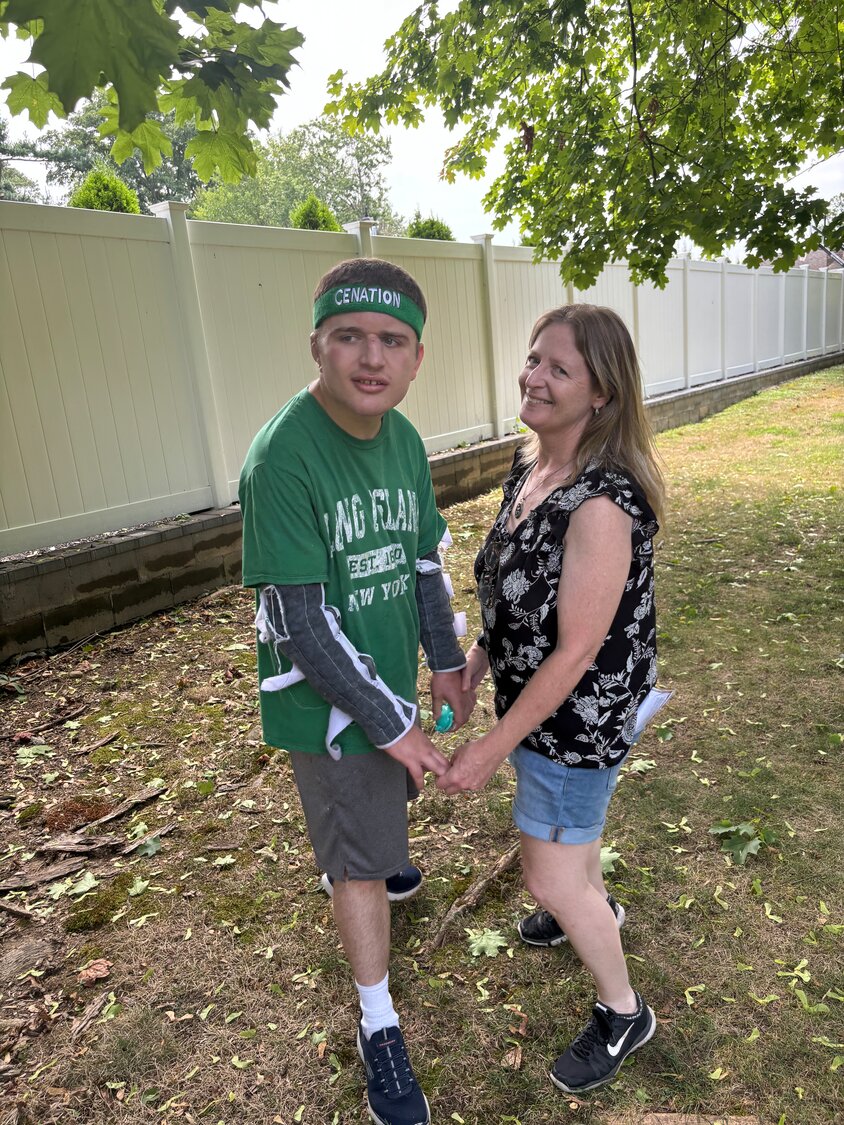Self-defense fundraiser this fall to raise money, awareness for profound autism research
Marsha Marino is a social worker, martial artist, and mother of a son with profound autism — and she is using her experience to support families in similar situations with her first ever fundraiser.
“Self Defense for a Cause,” a fundraiser at the Goshinkan Dojo in Merrick, will be held by the Profound Autism Alliance Oct. 11. For $50 an hour, donors can learn beginner-friendly self-defense and escape techniques taught by Marino, a first degree black belt in Jiu Jitsu who has practiced martial arts for 11 years in Bellmore. The event also includes a raffle, all of which supports the alliance’s advocacy for supportive legislation and research.
“What this organization is doing is to raise essential funds to support inclusive research and focus legislative advocacy so we can change the future for the people like my son with profound autism, because a lot of the research is not done on our population,” Marino, who resides in Massapequa, said. “They can’t address the behaviors they don’t know if they don’t do the research, and that’s where the money comes in for funding.”
Profound autism is a severe diagnosis, characterized by near or complete nonverbal behavior, as well as potential self-injury, aggression, and additional health complications, Marino explained. A person with profound autism requires lifetime aid and supervision from a caregiver.
Marino’s son, Matthew Marino, 22, lives in a group home operated by the Office for People with Developmental Disabilities, operated by New York state. He graduated from school last June, where Marsha connected with other families dealing with similar issues, including being turned away from schools across Long Island because their children or family members had too many support needs.
Opportunities are exceedingly rare, Marino said, there are very few day programs or residential care facilities for people with needs like Matthew.
“When you see him, you know he has a full life ahead of him,” Marino said. “He doesn’t want to just sit there, and these day programs deny our guys and girls because they need one-on-one care.”
The culprit behind this void of support for profound autism is twofold: low awareness, which leads to insufficient funding, she said.
Marino remembers when her son started showing symptoms of nonverbal behavior at 19 months, when symptoms of autism typically start to show. Her son’s struggles are comparable to those faced by 26.7 percent of autistic 8-year-olds who have this version of the condition, according to a 2023 study by the Centers for Disease Control and Prevention.
“The community that we’re talking about is young adults that need to have a full life,” Marino said. “We need these services and support now, not later.
“Sometimes, you feel the judgment when you’re in a doctor’s office,” she added. “We were in the doctor’s office a lot, because that’s what happens when self-injury is just so prevalent. They have their whole life ahead of them, and there’s no reason why it shouldn’t be meaningful or that they can’t do things with the right support.”
Kimberly Dick, executive director of the Profound Autism Alliance, sees a large gap between what support families need versus what they receive from their communities.
“While I do have two kids who are on the autism spectrum, they are not considered to be profound,” Dick said. “I found that so many of my friends that have kids with profound autism were not able to access the same services and support, and that there’s a lot more advocacy and research that needs to be done to really support these individuals and these families.”
Caring for an individual with profound autism can be incredibly challenging, both as a family member and as a caregiver, due to the constant attention and availability required.
“It’s just a much more intense need and level of care and support where parents and caregivers can experience burnout,” Dick said. “We have healthcare providers who are, unfortunately, not as experienced at helping people who are non-speaking or use assisted communication devices. It can affect all aspects of your life.”
The alliance’s advocacy has reached the House of Representatives, which is currently working on the Autism Cares Act. The PAA’s advocacy resulted in an amendment to the bill that will include individuals with profound autism in clinical research. The bill must pass the Senate with these changes in place to be signed into law.
The martial arts class will be held on Oct. 11 at 6 p.m., and registration ends on Sept. 15. To register, email marshamarino1967@gmail.com. To learn more about profound autism and related legislation, visit ProfoundAutism.org.






